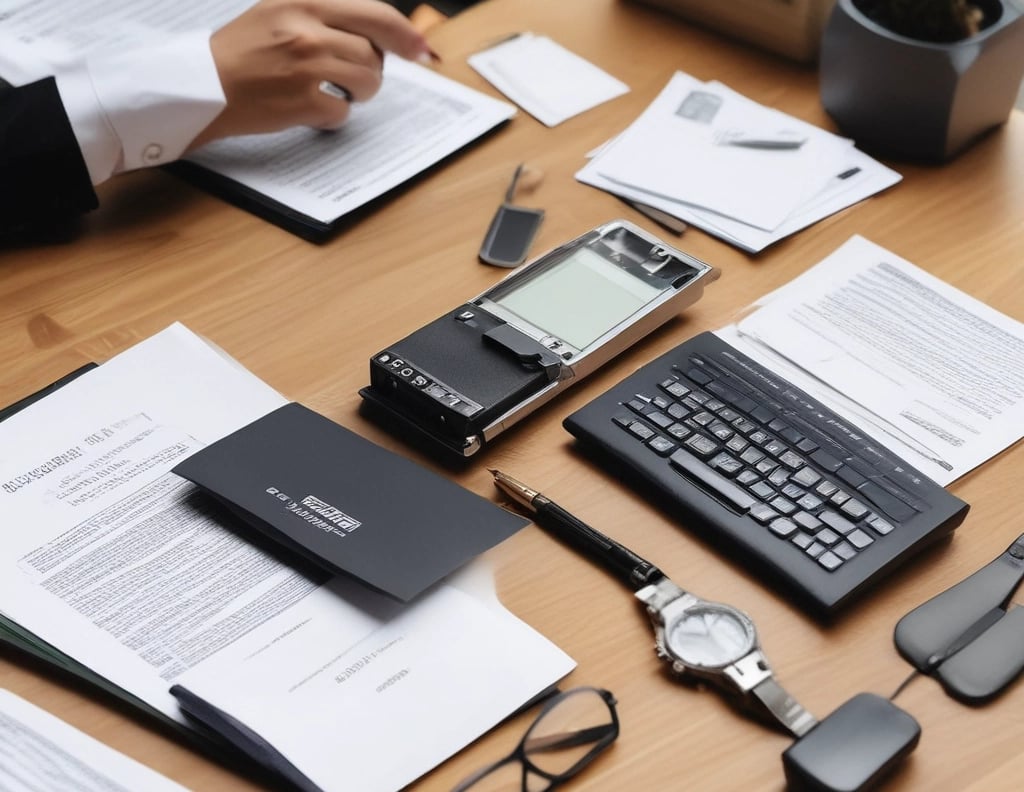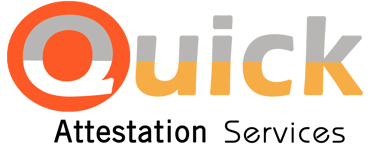Understanding Document Attestation for International Use
Learn about the document attestation process for international use. Discover the steps involved in legal document attestation and how it can facilitate your international transactions.
9/15/20257 min read


Introduction to Document Attestation
Document attestation is a crucial process that verifies the authenticity and legitimacy of documents intended for international use. This procedure is essential across various fields, including employment, education, and legal matters, particularly when individuals or entities aim to operate or study in foreign countries. By validating the documents, attestation ensures that they meet the standards set by the respective governing authorities in the destination country.
The primary purpose of document attestation is to confirm the veracity of the documents presented. This could include educational certificates, professional licenses, or legal papers that need to be submitted to foreign organizations, government bodies, or educational institutions. Attestation involves a series of verification steps, which may include notarization, state-level or federal-level validation, and authentication from the relevant embassies or consulates. This multi-tiered approach adds an additional layer of scrutiny, reinforcing the reliability of the documents in question.
In various scenarios, document attestation becomes a prerequisite. For instance, when pursuing higher education abroad, students are often required to provide attested academic records to ensure that their qualifications are recognized by foreign universities. Similarly, professionals seeking employment in another country may need to have their credentials attested, establishing their qualifications in alignment with local requirements. Legal matters, such as obtaining a marriage certificate or birth certificate for residency purposes, also demand proper attestation to affirm the documents’ authenticity.
Overall, understanding the document attestation process is imperative for anyone intending to use their documents internationally. With the complexities involved, it is advisable to familiarize oneself with the specific requirements of the destination country to ensure a smooth transition and to facilitate the acceptance of vital documents abroad.
Types of Documents Requiring Attestation
When preparing for international use, certain documents must undergo an attestation process to ensure their authenticity. This requirement typically encompasses three primary categories: personal documents, educational documents, and commercial documents. Each category serves a distinct purpose and necessitates validation for diverse uses, including employment, immigration, and business operations.
Personal documents such as birth certificates, marriage certificates, and divorce decrees are often required for various applications abroad. For instance, when an individual seeks to relocate or marry in another country, the host nation may request attestation of these personal records to verify identity and legal status. This process fosters trust in the documentation presented by individuals and supports the integrity of personal identification in legal matters.
Educational documents are another significant category in the attestation process. Diplomas, transcripts, and certificates of completion are commonly subjected to verification by educational institutions, professional licensing bodies, and employers overseas. For students pursuing further education or professionals seeking job opportunities abroad, having these documents attested helps establish their qualifications and legitimacy. Attestation provides assurance to foreign entities regarding the authenticity of educational achievements, simplifying the acceptance process in international contexts.
Lastly, commercial documents, including company registration certificates, invoices, and powers of attorney, are essential for businesses operating in global markets. Attestation of these documents is crucial for trade agreements, establishing partnerships, and ensuring compliance with foreign regulations. Companies looking to expand their operations or engage in international transactions benefit from having their commercial documentation properly attested, as it enhances credibility and builds trust with foreign partners and authorities.
Incorporating the attestation process into these document categories establishes their validity, allowing for smoother transactions, academic pursuits, and personal endeavors on the international stage.
The Attestation Process Explained
The document attestation process is a crucial step for individuals looking to use their documents for international purposes. This procedure ensures that documents such as educational credentials, birth certificates, or marriage licenses are recognized and accepted in another country. The attestation process typically unfolds in a systematic manner, encompassing several essential steps.
Initially, the procedure begins with verification by the issuing authority. This means that the original document must be presented to the relevant authority, such as an educational institution for degrees or a civil register for personal documents, to confirm its authenticity. It is vital to ensure that this verification is completed appropriately, as it forms the foundation for further attestation.
Next, once the document has been verified, it must be submitted to the Ministry of Foreign Affairs (MFA) for attestation. The MFA reviews the documentation and ensures its legitimacy, thus attesting that the document can be accepted overseas. This step may vary slightly depending on the country, with some requiring additional documents or forms to accompany the original.
If the destination country mandates it, the final step involves authentication by the embassy or consulate of that particular nation. This step serves as the last layer of verification, ensuring that the document meets the destination country's specific requirements. Each embassy may have its procedures and timelines, so it’s advisable to consult with them early in the process.
As for the timelines and costs, they can vary significantly based on multiple factors, including the issuing authority's processing speed, the MFA’s workload, and any embassy-specific requirements. Potential costs may include fees for verification, attestation services, and other miscellaneous expenses. Ultimately, understanding the attestation process can aid individuals in efficiently navigating their document preparations for international use.
Key Authorities Involved in Document Attestation
The process of document attestation is essential for the validation of certificates and documents intended for international use. Various authorities play pivotal roles in this process, each with specific functions and responsibilities designed to ensure the authenticity and legality of the documents being attested. Understanding these authorities is crucial for individuals and organizations to navigate the attestation process efficiently and avoid unnecessary delays.
At the local level, notaries public often serve as the first point of contact for individuals requiring document attestation. They provide notarization services, which authenticate a signature and verify the identity of the signatory. Following notarization, documents may need to be presented to state authorities, such as the Secretary of State's office in the United States, where they can be further authenticated. These state-level offices validate the notary’s signature and seal, making the document eligible for international use.
On the national level, various ministries and departments may be involved, depending on the type of document being attested. For instance, the Ministry of External Affairs in several countries is responsible for affixing its seal on documents that have already been authenticated by local authorities. This step is crucial, as it provides a federal stamp of approval, signifying that the document holds validity both domestically and internationally.
Additionally, embassies and consulates play a significant role in the attestation process. When a document is intended for use in a foreign country, it may require attestation from the respective embassy or consulate, which confirms the validity of the document as per the laws of the target country. Understanding this chain of authority helps individuals plan their attestation processes efficiently and mitigate potential complications that could arise if the sequence of attestation is not followed correctly.
Common Challenges Faced in Document Attestation
The document attestation process serves as a crucial requirement for individuals seeking to use their credentials internationally. However, this journey is often laden with a variety of challenges that may impede progress. One of the most prevalent issues is the presence of errors in the documents that require attestation. These discrepancies can arise from typographical mistakes, incorrect personal information, or inconsistencies among documents. Such errors can lead to significant delays and may necessitate a resubmission process, impacting both the time and financial investment involved.
Another challenge is the misunderstanding regarding the specific documents required for attestation. Different countries may have unique regulations and requirements concerning what documentation is necessary, which can create confusion. Individuals often find themselves unsure about which documents need to be attested, such as academic certificates, birth certificates, or marriage licenses, thereby prolonging the process unnecessarily. Furthermore, the dynamic nature of international regulations poses an additional hurdle, as what is acceptable today may not hold the same value tomorrow.
Processing delays are also common in the document attestation procedure. Factors such as bureaucratic inefficiencies, high demand periods, and variations in service speed among different institutions can contribute to waiting times. To mitigate these challenges, individuals can take several proactive steps. Ensuring all documents are accurate and complete prior to submission is fundamental. Additionally, staying informed about the specific requirements for the target country and potentially seeking guidance from professional attestation services can facilitate a smoother process. By being vigilant and prepared, individuals can navigate the complexities of document attestation more effectively, minimizing roadblocks along the way.
Tips for a Smooth Document Attestation Experience
Document attestation is a critical process for individuals seeking to use their documents internationally. To ensure a smooth experience, it is essential to gather all necessary documentation before initiating the attestation process. This includes obtaining original documents such as birth certificates, marriage certificates, educational credentials, and any other papers requiring verification. Organizing these documents in advance will significantly reduce potential delays.
Additionally, seeking assistance from reliable attestation services can make a substantial difference in navigating the complexities of this process. These services often have extensive experience and knowledge regarding the attestation requirements of various countries. They can provide valuable insights and help you avoid common pitfalls, such as incomplete paperwork or incorrect formatting. When selecting an attestation service, consider researching customer reviews to ensure their reliability and efficiency.
It is also vital to check the specific attestation requirements for the country in which this documentation will be used. Different countries have unique procedures and regulations regarding document verification. Some may require further verifications from additional bodies, such as the Ministry of Foreign Affairs or embassies. By understanding these specifications early, you can prepare adequately and ensure compliance with local laws.
Moreover, allow ample time for the attestation process. The timeline can vary significantly based on document type, the country of destination, and the service selected. Rushing the process can lead to mistakes or incomplete submissions, potentially straining timelines for visa applications or other legal necessities. By being proactive and organized, individuals can navigate document attestation with less stress, ensuring their papers are ready for international use when needed.
Conclusion and Final Thoughts
In the globalized world we inhabit today, the ability to authenticate documents for international use has become paramount. The document attestation process plays a critical role for both individuals and businesses attempting to navigate the complexities of operating in foreign territories. By ensuring that documents are validated, attested, and recognized by the appropriate authorities, one can significantly minimize potential legal hurdles that may arise during activities such as relocation, employment, or further education abroad.
Throughout this discussion, we have highlighted several key components of the document attestation process, including its necessity, the steps involved, and the various types of documents commonly requiring attestation. From educational certificates and marriage licenses to business contracts, the value of having properly attested documents cannot be overstated. This serves to reinforce your credibility and compliance with the regulations of your target country.
As individuals and organizations prepare for international ventures, it is crucial to undertake this process with diligence. Understanding the specific requirements of the country in question will aid in aligning your documentation accurately. Early preparation and thorough research into the attestation process can lead to a smoother transition, mitigating delays that could hinder important pursuits, such as job offers or academic admissions.
In light of the important role that document attestation plays in global operations, one must approach it with the seriousness it deserves. By investing the time to ensure that all necessary documents are properly attested, you will facilitate a more effective and efficient entry into your intended country, ultimately paving the way for success in your endeavors. The importance of this process cannot be overstated, as it serves as a foundational step in achieving your international aspirations.
Expert
Your trusted partner for document attestation services.
Contact NOw:
Support
+91 9210776391
© 2025. All rights reserved.
